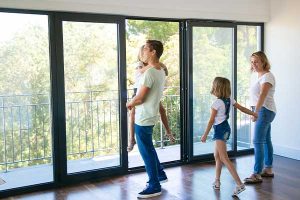What’s the Current Market Like?
Single-family homes in San Juan Del Sur and surrounding areas like Popoyo and Astillero are in high demand. As a result, there is some inflation for such properties. Retirees, families, and remote workers are attracted to Nicaragua’s many characteristics.
For example, a better quality of life is one of the perks. If you’re lucky enough to have been to Nicaragua, you’re probably familiar with other significant perks. This Central American country boasts an incredible climate, ample sunshine, and friendly people. The unique culture, stunning beaches, and magnificent cuisine also keep people coming back.
These perks entice people to stay and even start their construction in Nicaragua. If you stick around for a while, you’ll notice that the cost of living in Nicaragua is a very reasonable prospect. Building your dream home from the ground up with construction in Nicaragua is possible. Best of all, it might cost much less than you expect.
In this guide, you’ll discover some of the key ways to start your home-building process. As a result, construction in Nicaragua is becoming more fine-tuned and offering some of the most competitive prices globally.
Why Choose Construction in Nicaragua?
Construction in Nicaragua Is Inexpensive
People are always surprised when they hear about the cost of construction in Nicaragua. It’s such a satisfying feeling to share the good news – and that’s precisely what you’re doing when you talk about the cost of construction in Nicaragua.
People from Europe, North America, Canada, or Latin America who hear about it are often shocked. New construction in Nicaragua can be very affordable.
For example, brand new home construction in Nicaragua is about $130 per square foot (approximately). Since labor costs are low and materials are cheap, construction in Nicaragua is very reasonably priced.
If you’ve ever dreamt of living in paradise, it’s certainly worth it to look into construction in Nicaragua.
The Low Cost of Living in Nicaragua
On top of the low construction cost in Nicaragua, the cost of living is also very low. Even compared to neighboring Latin American destinations and its neighboring country Costa Rica, Nicaragua’s cost of living is very low.
Once you finish your home construction in Nicaragua, you won’t need to spend a fortune to enjoy your life here. It’s very common for families to dine out, hire workers, and buy groceries on a fraction of the budget they used to.
Economic Real Estate and Land
Like anywhere else, the foundation for outstanding construction in Nicaragua is the land it’s built on. The land is ready and abundant in Nicaragua. And you can buy much land for less than you’d expect in other places worldwide.
Even in developing communities, you may find pots of land at reasonable prices. Developing communities will already have great price points for amenities, utilities, and infrastructure. Having an infrastructure in place means you won’t have any additional expenses for your construction in Nicaragua.
Financing Is Available, Even for Foreigners
OK, so we’ve discussed low construction costs, a bargain on the land, and a low cost of living. Starting your construction in Nicaragua can be done for an excellent price. Even if you don’t have the funds to start your construction in Nicaragua right now, financing is available. With financing, you can start your construction in Nicaragua with only a 20 to 30% down payment. The payback. It can range anywhere from 10 to 15 years. Furthermore, interest rates are competitive, allowing you to take advantage of the low cost to start your construction in Nicaragua. Now is the perfect time to stop waiting and start building your dream home.
It is no secret that Nicaragua boasts exceptional properties, unending opportunities for recreation, and an enviable climate. So if you’re looking for a significant investment in a second home or vacation retreat, you need to visit us in this remarkable seaside destination.
Construction in Nicaragua vs Buying a House
If you have a particular or unique taste for your new home, construction in Nicaragua might be your best option. Here’s why.
After the pandemic, tourism slowed down in Nicaragua. But it’s steadily and consistently growing again. The travel restrictions that once limited people’s freedom are now virtually nonexistent. As a result, we’re expecting tourism to pick up rapidly this winter.
While the rental market took a hit from the pandemic, prices also dropped dramatically. As a result, the prices for homes in Nicaragua now are almost unbeatable.
Moreover, we’re seeing an increase in sellers due to lower ROIs for their properties in the rental market. As such, the demand for buyers is exceptionally high. Properties are selling like rapid-fire now. In addition, many are selling for under the asking price. Some are even selling for less than the cost of construction in Nicaragua to build a brand-new house.
Style and Design of Your Contruction in Niaragua
When considering the cost of a home, you need to look at the style and design. A typical Nicaraguan home or older construction will cost less than a newer or “American” style design. This is because design in Nicaragua has drastically improved in the last few years. However, a relatively new house might still feel dated due to the nature of its build. Therefore, you may notice a dramatic cost difference between an older home and new construction in Nicaragua. Even a well-maintained home can feel much older than it is due to the inherent design of traditional Nicaraguan homes.
The price range for homes in Nicaragua has vast variability. And, there are fewer options to buy an existing home with a contemporary design. This is especially true if you are looking for a more significant chunk of land or something on an out-of-town beach.
Consequently, if you have a specific vision for your dream home, construction in Nicaragua might be the most suitable option for you.
Doing Your Own Construction in Nicaragua vs. Hiring a Contractor
While it’s possible to build your house in Nicaragua independently, it’s not advisable. It might be a different story if you’re a professional builder in your home country. However, for everyone else, construction in Nicaragua is far from simple. Just because construction in Nicaragua costs less doesn’t mean it’s easier to do. And while labor costs are low, don’t mistake low cost doesn’t equate to easy.
Here’s the thing. The low labor cost comes at the price of inconsistent quality and skill of tradespeople. Unlike the US and Canada, Nicaragua does not have standards of practice or legal ramifications for poor-quality work. Moreover, there’s no standardized apprenticeship or trade school for niche professions like electricians, plumbers, or carpenters.
That said, the best builders in Nicaragua are usually reputable because they’ve produced desirable results. They’ve filtered through all available talent to build a team of the best employees and project managers.
Finding a trustworthy source to deliver quality work in Nicaragua is a task. However, if you choose to hire a credible contractor, they’ve already done that work for you. By working with a contractor, you’ll save yourself the time and energy of unnecessary “trial and error.”
One last note – even if you have expertise building in your home country, don’t expect to be an all-star in Nicaragua. Everything here is different, from the processes to the materials, and the timelines. You cannot apply the same notions as your home country to the building processes with construction in Nicaragua. Even if you don’t hire a contractor, it behooves you to consult with a professional familiar with the traditions, regulations, and practices of construction in Nicaragua.
Considerations for Choosing a Nicaraguan Contractor
Selecting a trustworthy and competent builder/contractor will spell the difference between the success or failure of your construction in Nicaragua. You may struggle with deadlines and price guarantees if you hire the wrong contractor. As the saying goes, you get what you pay for. So keep this in mind before you look for the cheapest builder, as that might cost you more in the long run.
Our company has a network of premier contractors, builders, and property managers in Nicaragua. We are happy to assist you with all of your real estate and construction needs. Please let us know if you need a professional reference for a trustworthy contractor or property manager.
If you already have a property and need a team to help you improve or expand your property, we can help with that too. We offer full service to our clients, from construction in Nicaragua to real estate and referrals.
Planning Your Construction in Nicaragua: Location and Size
Location
Think about where you would like to live your new life. Where do you want to start your construction in Nicaragua? Location is everything. The Southern Pacific coast is most popular with expats and foreigners. Plenty of neighborhoods offer amenities, resources, beaches, and a majority expat community.
Wherever you choose will make a massive difference in the cost and quality of your construction in Nicaragua. For example, the pacific costa region is more expensive than other parts. Land value is in higher demand, making prices a little steeper. Furthermore, since materials need to get transported from larger cities like Managua or Granada, that also inflates costs.
If you opt for new construction in Nicaragua, you will have more leeway with the location. For example, if you live in san Juan del Sur, you might love to surf in nearby beach towns like Playa Yankee, Playa Maderas, or Playa Remanso. However, those towns have very little to no inventory of modern homes with high-end finishes.
While those are great beach towns, your options for buying a finished house are very limited. They won’t stay on the market for long if they become available. So, if you see one you like for a reasonable price in an unpopulated neighborhood, we recommend jumping on it.
Size
If you want a home with ample acreage, that might also limit your search—most building lots in communities like San Juan del Sur and pop yo range from small to medium. For example, a quarter acre or 1100 square meters or less in San Juan del Sur is the median lot size. On the other hand, if you want an acre of more land, you might want to consider new construction in Nicaragua.
Many homes in Nicaragua are selling for much less than the asking price. You can build your perfect home with all your unique specifications if you buy a lot. Nicaragua is one of the few places where new construction can be a similar price or cheaper route if you can’t find what you’re looking for.
How Much Does Construction in Nicaragua Cost?
The cost of construction in Nicaragua will vary considerably depending on several factors. For example, what style and quality finishes do you desire?
If you are looking for a high-quality home built by “American” standards, the starting cost is around $130 per square foot. You can expect pleasant but not necessarily top-shelf finishes for that price. For example, $130 per square foot might afford you m the following features:
- granite countertops tops
- Recessed lighting
- aluminum windows
- metal railings on balconies
- upscale finishes
If your budget permits you to spend $170 per square foot on your construction in Nicaragua, you’ll get more luxury. That price point might get you vinyl windows, glass balcony railings, and imported tiles. For a 20-30 price increase, you might find more options for upscale finishes, fixtures, and cabinetry.
Another consideration for valuing the cost of your home construction in Nicaragua is the type of lot you want to build on. For example, will you build a house on land that has a slope or a hill? Depending on the nature of your land, you may need to pay extra to build retention walls. That might increase your overall cost by 10-30%.
Similarly, if you own a lot on top of a hill, it might cost more to transport materials there. In addition, you might incur extra labor costs if workers need to manually move materials to an inaccessible location.
Finally, you need to consider the water and electricity access. The builder may not factor such costs into your building cost. It would help if you drilled a well, added a septic system, and ran power lines. You need to factor those costs into your overall valuation of construction in Nicaragua.
Using a Corporation for Your Construction in Nicaragua
Before beginning your construction in Nicaragua, you may want to consider purchasing the lot through a Corporation. You can do that on the date of purchase. Getting a title through a Nicaraguan corporation will be beneficial down the line for several reasons.
First, when you purchase property in Nicaragua there will be associated closing costs. The closing cost is usually around 5% of the property value. If you later wish to switch your title to a corporation, you would technically need to transfer ownership. Even if you are the corporation’s owner, you would still need to transfer ownership for title purposes. Then you would incur another closing cost. So, you can bypass double paying the closing fees by putting the property in the corporation’s name from the get-go.
Another reason to use your corporation for construction in Nicaragua is for increased value. If or when you decide to sell your property, potential buyers will be more enticed to property from a business than an individual. This is because the buyer would purchase shares and thus the property, meaning they only pay a fraction of legal costs that way.
Lastly, using a corporation for your construction in Nicaragua will make it easier for you to get residency if you wish. It will also be easier for you to own and register a vehicle. One final consideration is to ensure that your use of a corporation fits your tax schedule in your home country. Most people will find owning a foreign corporation advantageous to their tax structure.
What Is the Process for Construction in Nicaragua?
Once you’ve found your land and set the title up under your corporation, you’ll find a builder or contractor. Then, you are ready to start your construction in Nicaragua.
You will need to run your building plans through an architect to ensure they comply with building laws in Nicaragua. Most builders and contractors can refer you to a trusted architect. If you don’t already have a design, the architect can also help with that. If you have something particular or unique in mind, there are plenty of options for suitable Nicaraguan architects who can help you actualize your vision.
Once your design is complete, you can start your construction in Nicaragua. You’ll most likely be ready to make an initial payment to your contractor at this point.
Your builder will handle all building permits. As long as your plan meets HOA standards and codes, it should be easy for your builder to secure permits.
Nicaragua’s most common payment structure is a schedule that follows the building’s progression. The payment schedule generally follows a 50-30-10-10 percentage timeline. Once your plans are approved, you can expect to pay the builder an agreed amount (typically 50% of the funds). Your builder will prepare the site for construction and earth movement and purchase the materials.
The second payment will generally be about 30% of the total cost. Your builder will use this payment to obtain materials like windows, doors, and kitchen and bathroom finishes. Lights and fixtures will be another 10% installment. The final 10 percent you will pay when your construction in Nicaragua is complete.
Congratulations!
Now, you should have the keys to your new home! Congratulations!
A superb builder might finish a 2000 square foot 3 bedroom in six months. A less skilled builder might take a year to build the same house and go over the budget. They might also have more hidden mishaps that will come up later in your construction in Nicaragua. That’s why our final word of advice is to find a great builder who will do everything right the first time. You’ll save yourself a lot of stress in the long run.
Building Materials for Construction in Nicaragua
Concrete
Concrete. You’ll almost certainly deal with it at some point in your construction in Nicaragua. The staple of most foundations in Nicaragua is concrete. Concrete walls, rebar, framing. Nicaraguan builders are well-versed and competent when it incomes to construction in Nicaragua with concrete. Generally speaking, builders and construction workers are very competent with concrete.
Steel framing. This method combines with durock exterior cement angels covered with mesh and stucco. It’s a faster and lighter billing method than concrete. As a result, it costs less as well. However, it is less durable than cement and may have a slight potential for excess moisture if not built correctly.
Steel Framing
Another way to use steel framing is to combine it with structural foam panels. They would be covered by mesh and stucco. Similar to durock, it produces the same appearance as concrete. One of the pros of this method is better insulating properties and lightweight. Consequently, foundations bear less. It also takes less time to build than concrete. That would make for saving on labor costs.
The cons to a steel frame with structural foam panels and stucco are that it needs to be built properly. There is no room for mistakes. Like Durock, it’s less durable than concrete. You can ding walls up more quickly.
It’s less common to use wood in a non-exposed structure. For example, good builders never use timber framing inside walls. The climate and insects make that a poor building practice.
Wood
Exposed hardwood can be structurally sound and have beautiful accents. For example, you may want exposed hardwood pillars and roofing. Both would be beautiful and highly durable.
Many local Nicaraguan hardwoods are insect resistant and durable. However, keep in mind that obtaining those certain hardwoods is heavily regulated.
Metal Roofing
Metal roofing is the most common type of roofing. Sometimes Spanish tiles are used on top of the metal for style and added insulation. However, metal roofing provides a waterproof barrier and absorbs sun while blocking them from the home’s interior.
Tile or polished concrete is the most common type of flooring. Unfortunately, the carpet is highly discouraged due to the climate and humidity.
Tile or polished concrete is the way to go for flooring. Carpet is a bad idea given the climate and humidity. And even hardwood floors aren’t as desirable, in my opinion. For durability and ease of cleaning, the choices are tile or concrete.
Furniture and Finishing Touches for Your Nicaraguan Home
You can find locally crafted hardwood furniture for great deals here. SImplamente MAdera, Masaya and Compay, and Tienda O are just a few. They offer exquisite handmade wood furniture. Prices are a fraction of those you would find for similar furniture in the USA.
Fixtures and the furnishing for your construction in Nicaragua will probably come from Managua. Siman, Pricesmart, and Sinsa are the leading big-name companies. They tend to be on the higher side of the price spectrum.
Nicaragua Project Management
We offer a full-service property and project management company. Our team of local experts has the resources to help maximize and manage your investment in Nicaragua.
We can help you find short- and long-term rentals while we manage your project. Our knowledge and connection with local Nicaragua construction companies are what distinguish us. We’ve built relationships with them, which help us cater to various aspects of our client’s needs. So from rentals to marketing and investment management to construction and design management, you can cater to your needs.
Here are some of our services that can help you during your construction in Nicaragua.
Our Property/Project Management Services
Rental
- Short-term properties (house Rentals in Nicaragua, rental properties in Granada, Nicaragua, rentals in San Juan del Sur, Nicaragua, and rentals in Managua, Nicaragua ) via third-party owners
- Airbnb, Booking.com, VRBO, Homeaway, and Flipkey.
- Concierge services
- Guest services include fishing, surfing, and travel amenities.
- Long-term rental contracts
- in san Juan del Sur Nicaragua
- Granada
Marketing
- Hosting on Emerald Investment website
- Become Linked to Emerald Investment Social Media.
- Representation with travel agents and vacation planners.
Investment Management
- Punctual monthly reporting via email.
- Payment collection and distribution.
- Local bill pay assist
- 1099 IRS forms per calendar year assistance
Investment Maintenance
- Pre and post-guest cleaning services
- Bi-weekly property upkeep reviews.
- Routine maintenance.
- Completion and oversight of owner-request projects and repairs.
Construction
- New builds from inception to completion.
- Renovations, additions, and repairs.
- Routine supervision.
- Central landscape or hardscapes developments (including pools.)
Project and Land Development
- Infrastructure development.
- Roads and access.
- Septic, wastewater, and pluvial systems.
- Connection to an electrical grid.
Design Management
- Development of clients’ property.
- Permitting, designing, and competitive bidding.
- Architectural and design services.
- Onsight project oversight and customer communication
Contact us for more information on how to get started on your construction in Nicaragua!





